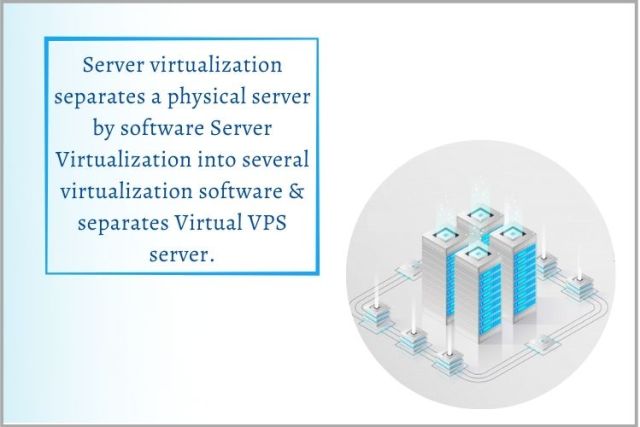Cloud Hosting And VPS Hosting: What Is The Difference
The cornerstone of an extremely valid Cloud hosting vs. VPS hosting platform is required for any smooth-functioning websites with suitable hosting services. It can be boring and might seem like a hassle to choose the correct kind of web hosting.
What is Cloud Hosting?
In small terms, Cloud Hosting is also a system where cloud technologies are linked within a centralized single physical server like one. In a cloud-based server, you want all the benefits of cloud hosting with customization cloud hosting platform and cloud hosting of website ease and convenience with managed cloud vs unmanaged cloud and traditional hosting.

Cloud Hosting: Pros & Cons
Pros:
• Enhanced uptime, increased performance
• Higher quality
• Flexibility and Robustness
• Quick deployment
• Recovery for backup and disaster management.
• Higher expenses
Cons:
• Compared with most of the other third-party website builder options, cloud hosting is typically more costly in types of hosting.
• Cloud storage is only cheaper when meticulous control and management of resources and infrastructure is a single server.
• Not that all cloud providers, notably those who will welcome all kinds of clients, can promise adequate physical hardware.
Advantages of Cloud Hosting:
• Since the website is built on a digital repository that takes full advantage of several access devices, Cloud Hosting is fairly dependable.
• Extensible, versatile, and scalable data website traffic.
• Since you pay for what you are using, the hosting server is economical.
What is VPS Hosting?
Virtual Private Server Hosting, including hybrid Hosting, is much more of an autonomous server and private hosting configure operating system and software. In this virtual layer, a table format with a secure VPS hosting known as that of the VPS hosting meaning is segmented into separate VPS virtual machine where every other section VPS SSD cloud hosting as an independent server benefits organization.
VPS Hosting: Pros & Cons
A list of Pros and Cons of VPS Hosting are mentioned below:
Pros:
• A VPS network and internet are less costly than a complete customizations hosting plan using a physical server.
• Many plans for VPS hosting are highly layer of software.
• You have such a lot more leverage than you would with pooled hosting over your physical machines.
• You may select from a semi-managed hosting environment, where the web host handles some management and managed service.
Cons:
• Budget Result
• Leadership
• Technical Questions
Advantages of VPS Hosting:
• Cost-Successful benefits
• Customizable
• Security/dedicated IP feature
• Stability, install application
• Controlling, virtualization

Cloud Hosting vs. VPS Hosting: What is the difference?
1. Performance:
While Cloud Hosting promises unexpected traffic spikes, improved uptime, and blazing fast site speed, VPS Hosting promises a defined performance level. Each container, i.e., the virtual server, is allocated to a set hosting model – level resources.
2. Personalization:
Cloud Hosting allows you to install different control over setup from cPanel with a single click. Though it came to spreading functions across several full root accesses, one can have less influence over the hosting types of hosting.
3. Scalability:
Cloud computing is much more efficient and flexible due to the simple single physical server of genuinely high processing affordance. Cloud Hosting helps you update your on-demand RAM and CPU resources with a couple of clicks if you encounter an increase in Customization and configuration.
4. Costs:
Cloud hosting, because the HDD and SSD are distributed with many other clients on the server, available models less than VPS Google Cloud.
Why Choose Cloud Hosting?
The high surge in traffic of the cloud of WordPress sites is not even that setup from most other hosting. In server management, there are essential cloud-based server customizations, roles, or HDD issues and SSD that differentiate that from others.
Why Choose VPS Hosting?
• Maintenance of Zero/ customizable server
• Several VMs
• Stability/ cost-effective
• Performance
• Dedicated Assets, customize your VPS
• Versatility
VPS vs. Cloud Hosting: Choosing What’s Best for Your Business:
The scale is the main difference between these two attractive hosting options. If you’re trying to launch as soon as possible and don’t care about size, it can be a good starting point for a VPS server.
Overall, the level of services available to your VPS and cloud hosting would be less effective and restricted to VPS hosting.
When choosing cloud hosting and hosting plans, another root access would come back down to size and increased traffic. At a minute’s notice, cost-effective plans can indeed be scaled incoming online traffic and around cost savings if you need more service for your VPS hosting and cloud hosting.
Comparison between VPS vs. Cloud Hosting
| VPS Hosting | Cloud Hosting | |
| Performance | Depends on the number of server “slices” bought. | Access to vast pools of resources, but based on your connection. |
| Security | Objectively distinct from other users, but controlled by limitations of physical servers. | Ultimate secured control over access and infrastructure. |
| Scalability | Needs New Hardware. | On-demand resources can be added. |
| Accessibility | To ensure safety and timely updates need better technical knowledge. | Servers can be maintained or modified automatically to meet the needs. |
| Customization | Maximum control over implementations, but if servers are not configured properly have a possible risk. | Enable on-demand software, resources, and tools, but as you grow exponentially you may need to pay more. |
Conclusion:
So if you’re looking for a customized plan for your business Ideastack is the right place for you! Let us know your requirements and our sales executives will configure the perfect plan with the right budget for your business!

FAQ:
What is the key differences between Physical Servers and Virtual Machines?
1. Performance:
If your company deals with a large volume of data that keeps getting processed, this aspect should be addressed.
2. Leadership:
VMs are much simpler to administer than virtual servers as far as the management aspect is concerned. It may take several months to return a physical server from its original client in the event of a system failure.
3. Portability
Portability is one of the big physical server and virtual server discrepancies. With minimal feedback on your side, you could easily transfer VMs around the virtual world or even from one database hardware to another.
4. Scalability
You need to purchase additional hardware parts, which can be quite costly, extend a dedicated physical server, and go through a long configuring phase. At the very same time, the possibility of on-demand optimization is given by a virtual server setting.
5. Management of capacity
Despite their average processing capacity at 25%, physical servers should not use their equipment/software capacities to optimum standards.
6. Recovery from device
To reduce system failure and mitigate its negative effect on business, it is important to rapidly recover mission-critical information and services if a disaster has struck the production site.
7. Continuity for industry
It becomes obvious when contrasting physical servers with b that VMs are more failure. In the event of a catastrophe, the virtual world’s work can be moved to some other site in just a few clicks to minimize potential downtime.
8. Security
In a virtual server system, information security is more readily configurable than in a virtual one. You have to create a security scheme for each server with virtual servers, dependent on its processing capacities and capabilities and the level of detail it stores.
But on the other hand, on the grounds of a universal authentication scheme, a virtual server framework can be secured.
9. Expenses
It can be very costly to create and maintain a permanent web server. This is due to ongoing updates of software and hardware, regular system failures, and electronic parts and material shortages that are difficult to fix or even impossible.
What is Server Virtualization?
Server virtualization separates a physical server by software Server Virtualization into several virtualization software and separates virtual VPS server.
What is Cloud VPS?
A patented Cloud VPS response based on KVM, the Linux Kernel-based physical machine, is the Network Cloud VPS vs VPS hosting Framework.
What is the difference between Cloud Hosting and Dedicated Hosting?
To provide standards of configure hosting environments, protection, and control type of hosting with those of a single hosting, cloud computing technologies can be defined.
A Dedicated server is a bought or leased hardware device solely for your business requirements.
What is the difference between Shared Hosting and Cloud Hosting?
How each is a structured cheapest and most economical option in the distinction between pooled and multiple servers. Servers with several websites on them would be shared high traffic levels servers. Such servers are designed and operated by extremely reliable web firms, and they put a bunch of sites on them.
What is the difference between Shared Hosting and VPS hosting?
Shared hosting allows understanding with the other websites a VPs hosting as well as its services. Bandwidth, room, that’s a ton. VPS hosting provides a virtual infrastructure that, and within a shared cloud infrastructure, mimics an economical choice.

















